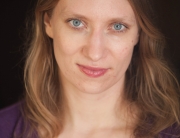This letter was posted on the website, “Letters of Note”, http://www.lettersofnote.com/ which gathers real-life letters, postcards, etc that are significant in some way. A friend brought this website to my attention, and I felt moved to share this particular part of a letter on my own blog.
In July of 1931, author and philosopher Will Durant wrote to a number of notable figures and asked, essentially, “What is the meaning of life?” His letter concluded:
Spare me a moment to tell me what meaning life has for you, what keeps you going, what help—if any—religion gives you, what are the sources of your inspiration and your energy, what is the goal or motive-force of your toil, where you find your consolations and your happiness, where, in the last resort, your treasure lies. Write briefly if you must; write at length and at leisure if you possibly can; for every word from you will be precious to me.
Durant received many replies, a selection of which were compiled in the book, “On the Meaning of Life.” It includes a profound response by H.L. Mencken, the first part of which so exactly matches my own philosophy I couldn’t help but share it here:
Dear Durant
You ask me, in brief, what satisfaction I get out of life, and why I go on working. I go on working for the same reason that a hen goes on laying eggs. There is in every living creature an obscure but powerful impulse to active functioning. Life demands to be lived. Inaction, save as a measure of recuperation between bursts of activity, is painful and dangerous to the healthy organism—in fact, it is almost impossible. Only the dying can be really idle.
The precise form of an individual’s activity is determined, of course, by the equipment with which he came into the world. In other words, it is determined by his heredity. I do not lay eggs, as a hen does, because I was born without any equipment for it. For the same reason I do not get myself elected to Congress, or play the violoncello, or teach metaphysics in a college, or work in a steel mill. What I do is simply what lies easiest to my hand. It happens that I was born with an intense and insatiable interest in ideas, and thus like to play with them. It happens also that I was born with rather more than the average facility for putting them into words. In consequence, I am a writer and editor, which is to say, a dealer in them and concoctor of them.
There is very little conscious volition in all this. What I do was ordained by the inscrutable fates, not chosen by me. In my boyhood, yielding to a powerful but still subordinate interest in exact facts, I wanted to be a chemist, and at the same time my poor father tried to make me a business man. At other times, like any other realtively poor man, I have longed to make a lot of money by some easy swindle. But I became a writer all the same, and shall remain one until the end of the chapter, just as a cow goes on giving milk all her life, even though what appears to be her self-interest urges her to give gin.
I am far luckier than most men, for I have been able since boyhood to make a good living doing precisely what I have wanted to do—what I would have done for nothing, and very gladly, if there had been no reward for it. Not many men, I believe, are so fortunate. Millions of them have to make their livings at tasks which really do not interest them. As for me, I have had an extraordinarily pleasant life, despite the fact that I have had the usual share of woes. For in the midst of these woes I still enjoyed the immense satisfaction which goes with free activity. I have done, in the main, exactly what I wanted to do. Its possible effects on other people have interested me very little. I have not written and published to please other people, but to satisfy myself, just as a cow gives milk, not to profit the dairyman, but to satisfy herself. I like to think that most of my ideas have been sound ones, but I really don’t care. The world may take them or leave them. I have had my fun hatching them.








This is not correct. The correct H.L. Mencken essay, one which I think you will find even more powerful, is found here:
http://www.lettersofnote.com/2012/01/on-meaning-of-life.html
For sake of brevity I shortened the original letter in my post, but people can read it in full on the website you list and I copied it from.